2021-02-05
Are PPC Ads Worth It?
A lot of businesses aren’t sure whether paid search advertising is an effective tactic to include in their sales and marketing mix. We get this question a lot:
Are paid search ads going to work for my business?
We also meet a lot of marketers who have tried to use paid search advertising in the past but weren’t very successful. Sometimes, they fell victim to some of the common pitfalls marketers make when managing paid search campaigns. Sometimes, they just don’t know how to evaluate the effectiveness of their program.
Watch our video or read more below on how we figure out if pay-per-click search ads are “worth it” for your business.
Figure Out The ‘Value’ Of A Web Conversion For Your Business
What are you trying to get users to do on your website? Do they buy a product? Do they become a sales lead? Do they schedule an appointment? Make sure you know what action you want them to take – that will be your web “conversion.”
So, how much is a “conversion” worth to you? We can do some ‘back-of-the-envelope’ math to figure that out.
If you are an e-commerce business, typically your “conversion” is just a sale. This makes it easy to calculate your conversion value. We would use the average order value as a starting point. You can also use some fraction of the average order value to make sure you have some margin leftover when you make that sale (e.g. our average order value is $100 with a 50% product margin, so we only want to pay up to $50 for a sale – $50 is our estimated web “conversion” value).
If you are a business that generates leads, you can use your sales funnel data to estimate the value of a “conversion.” Figure out the answer to a few questions:
What is the average revenue we get from a new client? Is it monthly recurring or one-time?
If revenue is recurring, how quickly do we want to make our money back? 1 month? 3 months? 6 months?
What is the average close-rate we have on new leads?
What type of margin do we have on our services?
For example, let’s say we run a gym where we charge $30 per month for memberships (a customer provides $30 of monthly recurring revenue / MRR). We decide we want to make our money back in 4 months from each new customer we acquire. Our average close-rate on our leads is 30%.
$30 MRR x 4 Months x 30% Close Rate = $36
$36 is our target cost per lead to ensure we hit our goals – this becomes our web “conversion” value.
Here are a few other examples:

Research The Estimated Click Costs Of Your Relevant Keyword Targets
Now that we know what a conversion is worth to our business, let’s figure out how much we should expect to pay for clicks.
One of the best ways to get that data is using the Google Ads Keyword Planner tool. This is a tool made available to you if you have a Google Ads account (PS – you can set up an account without actually running any ads, so this tool is ‘free’ if you don’t mind going through the hassle of setting up a dummy account).

There are many ways to use this tool, but for now, we will assume you have a basic idea of your target keywords. You’ll want to select the “Get search volume and forecasts” option, and then type in any keywords that you think would be relevant for your business.

For the sake of this analysis, look at the “Historical Metrics” tab of the report. Google will provide estimates of monthly searches as well as click costs for your target terms.

In this example, our target term “ac repair” has a potential click cost range of ~$9-$58. Wow – that’s a pretty large range. Typically you can pay less for your clicks by having really good campaigns (high Quality Score) or managing your bids in a smart way (e.g. using device or time-of-day based modifiers).
Note the range of these numbers. We will use them in the next step.
Use Estimates Of Web Conversion Rate And Click Costs To See If You Are Within “Striking Distance” Of A Profitable Program
To complete this assessment, we need to think through one more item. We already know our “conversion value.” We also know our expected range of click costs. Now we need to estimate how many of our “clicks” will turn into “conversions” – we’ll call this the “conversion rate.”
There are a few ways to estimate this. First, if you have tracking already set up you could use your own data. Alternatively, you could use an estimated range. We find that many of our clients experience conversion rates of 2% to 20%.
Let’s review what we have now:
click cost estimates for our target keywords
conversion rate estimates for our website
target conversion values based on our business goals
We then use these numbers to do put together a “sensitivity table” that shows us a range of possible outcomes in terms of “cost per conversion” based on our CPC and conversion rate estimates.
We’ll use the HVAC example ($128 conversion value; $9-$58 CPC) to calculate a range of expected “cost per conversion” outcomes of a PPC campaign:

As we can see from this table, for PPC campaigns to be “worth it” for this imaginary business, we need to keep our click costs in the $9-$25 range and convert at least 11% of our web users. This gives us some good benchmarks for what to expect, and it also gives us targets to hit.
Test With A Small Campaign To Validate Your Assumptions
Everything we just did was theoretical. If we found out through that exercise that there was no way to profitably acquire customers, then great – PPC is not “worth it” for your business. If any of the expected outcomes were equal to or less than our estimated conversion value, then PPC might be worth it to invest in.
Equipped with this data, we recommend testing a small campaign so that you can:
Get more realistic (‘actual’) estimates of expected click costs
Get real data on your actual PPC conversion rate
Remember, if you have a poor Quality Score or a poor conversion rate, the issue might not be “PPC” – it may mean that you need to work on campaign optimization to improve Quality Score and click costs, or you need to work on your website to improve conversion rate.
We hope this exercise can help you figure out if PPC is “worth it” and give you a framework for estimating outcomes and setting CPC and conversion rate goals.
Good luck and remember to always be optimizing your investments!

Jeff Cooper
Founder & President, Saltbox Solutions

